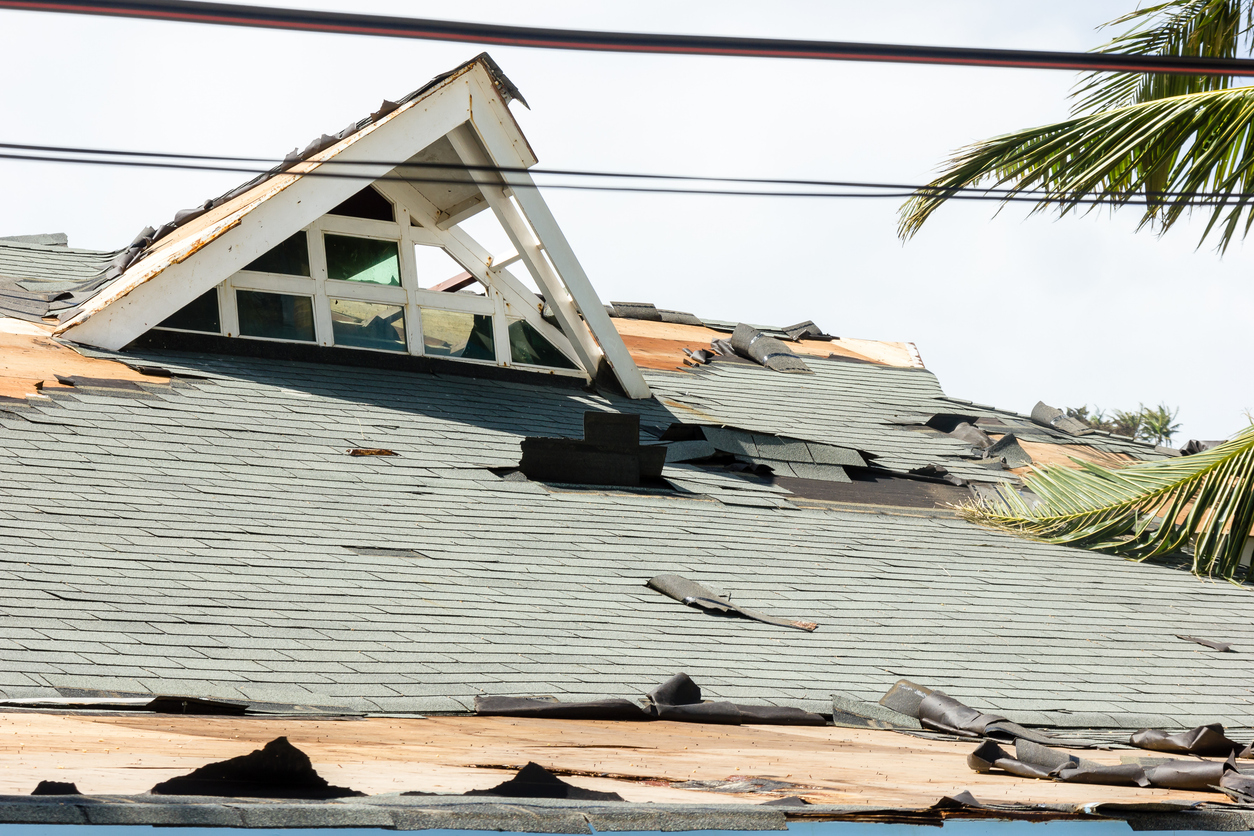When severe weather strikes, your home is at risk of significant damage, whether it’s from high winds, hail, flooding, or debris. For homeowners, understanding whether their insurance covers storm damage is essential to avoid unexpected repair costs. Having the right insurance coverage can protect you financially, but navigating the claims process can be confusing.
In this guide, we’ll explore what storm damage is typically covered by insurance, how to ensure your policy includes the necessary protections, and what steps you can take to handle storm damage repair efficiently.
What Is Storm Damage?
Storm damage refers to the destruction caused by severe weather events, such as:
- Hurricanes and tropical storms
- Hailstorms
- Tornadoes
- Heavy rains and flooding
- Lightning strikes
- High winds
Storms can cause a variety of damage to your home, including roof damage, flooding, broken windows, and structural issues. Insurance coverage for these types of damage varies depending on the cause of the storm and your specific policy.
Does Homeowners Insurance Cover Storm Damage?
In most cases, standard homeowners insurance policies do cover certain types of storm damage, but the specifics can vary widely based on the type of storm and the kind of damage incurred.
What Is Typically Covered?
- Homeowners insurance typically covers the following types of storm-related damage:
- Wind damage: Damage to your roof, siding, or windows caused by high winds, such as in hurricanes or tornadoes, is generally covered.
- Hail damage: If a hailstorm causes damage to your roof, siding, or windows, this is usually covered by standard insurance policies.
- Lightning strikes: Damage to your home from a fire or electrical surge caused by a lightning strike is usually covered.
What Is Not Covered?
While many types of storm damage are covered, there are some exceptions and exclusions:
- Flooding: Flood damage is usually not covered by standard homeowners insurance policies. To cover flood damage, you will need a separate flood insurance policy, which is especially important if you live in a flood-prone area.
- Earthquakes and mudslides: Like flooding, earthquakes and mudslides are not typically covered by standard policies. You would need to purchase separate earthquake insurance for this type of damage.
- Windstorm exclusions: In some high-risk areas, like hurricane-prone regions, windstorm damage may be excluded or require an additional rider.
It’s essential to carefully review your policy and understand what is and isn’t covered. If your home is in a high-risk area for certain types of storms, consider adding supplemental coverage.
Understanding Storm Damage Repair Coverage
When severe weather damages your home, the cost of storm damage repair can be significant. Homeowners insurance is designed to help cover the cost of repairs, but understanding how this process works is key to avoiding out-of-pocket expenses.
The Claims Process for Storm Damage
If your home suffers damage during a storm, follow these steps to ensure your insurance claim is processed efficiently:
- Document the damage: After the storm has passed, take detailed photos and videos of the damage. This documentation will be essential when filing your insurance claim.
- Make temporary repairs: If your home is exposed to further damage due to broken windows or roof leaks, make temporary repairs to prevent more damage. Save all receipts for these repairs as your insurance may reimburse you.
- Contact your insurance company: File a claim with your insurance company as soon as possible. Provide them with details of the damage and your documentation.
- Meet with an adjuster: The insurance company will send an adjuster to inspect the damage and determine the payout. Be sure to walk the adjuster through your home and point out all areas of concern.
- Get estimates from contractors: Once the adjuster’s report is complete, get estimates from licensed contractors for the repairs. Compare the adjuster’s estimate with your contractor’s and negotiate if necessary.
- Start the repair process: Once you’ve agreed on the payout, you can begin repairs. Make sure to hire contractors who are experienced in storm damage repairs.
For homeowners in hurricane-prone areas, you can learn more about filing claims for hurricane-related damage at Hurricane Damage Claim.
Common Issues with Storm Damage Insurance Claims
Filing an insurance claim after a storm can sometimes be complicated. Homeowners often encounter delays, disputes over the extent of damage, or low payouts. Below are some common challenges and how to address them.
-
Delayed Claims Processing
In the aftermath of a major storm, insurance companies are often inundated with claims, which can lead to delays in processing.
Solution: Stay in regular communication with your insurance company to check the status of your claim. Document every interaction in case you need to escalate the issue.
-
Disputes Over Damage Assessment
Insurance adjusters may not always agree with homeowners or contractors on the extent of the damage. For example, roof damage may appear minimal, but underlying issues like leaks or structural weaknesses may go unnoticed.
- Solution: Get multiple estimates from contractors and, if necessary, hire a public adjuster to advocate on your behalf. A public adjuster works for you, not the insurance company, and can help ensure you receive a fair payout.
Public Adjusters Orlando FL can assist you if you’re having difficulty with your storm damage claim.
-
Low Settlement Offers
Insurance companies may offer lower settlements than expected, particularly if they believe the damage can be repaired for less than you were quoted.
- Solution: Review the settlement offer carefully and don’t hesitate to negotiate. If the offer is too low, provide additional documentation, such as repair estimates from licensed contractors, to support your claim for a higher payout.
What If You Don’t Have Storm Damage Coverage?
If your homeowners insurance policy doesn’t cover all types of storm damage, you may find yourself facing hefty repair bills. Here’s what you can do:
-
Purchase Supplemental Coverage
If you live in an area prone to flooding, hurricanes, or other types of severe weather, consider purchasing supplemental coverage:
- Flood insurance: Required in high-risk flood zones, flood insurance covers water damage caused by rising water, heavy rain, and storm surges. Learn more about flood claims at Residential Claims.
- Hurricane or windstorm insurance: In some states, you may need additional coverage specifically for windstorm damage. This is especially important in coastal areas prone to hurricanes.
-
Strengthen Your Home
Strengthening your home against future storms can also reduce your risk and lower your insurance premiums:
- Install storm shutters: Protect windows and doors from high winds and flying debris.
- Reinforce your roof: Make sure your roof is in good condition and consider installing hurricane straps or clips to strengthen its attachment to the walls.
- Improve drainage systems: Ensure that your gutters and downspouts are clear and functioning to prevent water accumulation.
How to Avoid Common Storm Damage Claim Pitfalls
To ensure a smooth claims process and avoid common pitfalls, follow these best practices:
Review your policy regularly: Make sure your coverage limits reflect the current value of your home and belongings. If you’ve made improvements to your property, update your policy accordingly.
Maintain your home: Regular home maintenance, such as roof inspections and tree trimming, can help prevent damage during storms and reduce the risk of claims being denied due to negligence.
Document the state of your home: Keep an inventory of your belongings and document the condition of your home before storm season. This can help you prove your claim if needed.
Conclusion: Be Prepared for Storm Damage
Severe storms can strike unexpectedly, causing significant damage to your home. By understanding your insurance coverage and knowing how to navigate the storm damage repair process, you can protect your home and finances.
If you need assistance with your claim, consider working with a public adjuster who can help ensure you receive the compensation you deserve. For more information on managing storm-related insurance claims, visit Public Adjusters Orlando FL or learn more about handling Residential Claims at Residential Claims.

